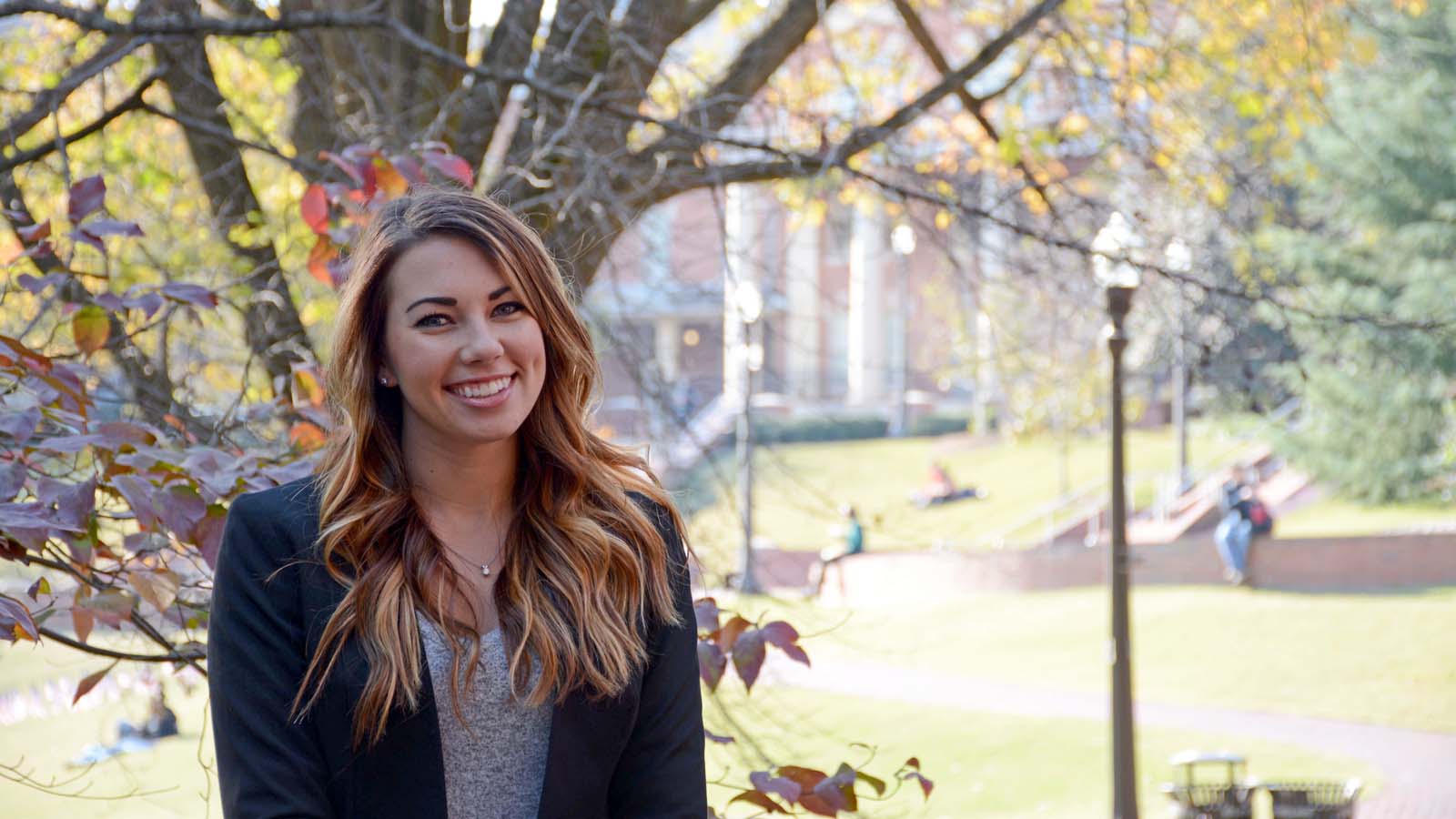Terrorism Study Helps Student Realize Passion for Psychology

Research on terrorism is not what Sarah Mills had in mind when she first enrolled at NC State. But conducting undergraduate research in forensic psychology helped Mills find her passion.
Mills was originally interested in engineering. But she took a special topics course with associate professor of psychology Sarah Desmarais her junior year and “fell in love with the subject” of forensic psychology.
After seeing a flyer last August promoting research opportunities with NC State’s Forensic Psychology in the Public Interest Lab, Mills began working with Desmarais, psychology teaching assistant professor Joseph Simons-Rudolph and other students on a systematic review of literature on terrorism and membership in terrorist groups, under a research grant sponsored by the Laboratory for Analytic Sciences (LAS). LAS is a translational research collaboration between the National Security Agency (NSA) and NC State University that focuses on the development of new analytic technologies and analysis tradecraft to meet the complex and dynamic challenges presented by “Big Data.”
The researchers sorted through more than 22,000 abstracts on terrorism and ultimately included more than 180 articles in the study, which they are still adding to. Mills and other undergraduate researchers coded the articles based on location, type of study and the focus.
“We needed to take all relevant literature into consideration in order to consolidate the information and summarize what has been published,” Mills said “It will provide a direction for future research to say, ‘This is what has been done, and this is what still needs to be done,’ which is a lot.”
The researchers identified trends in the organization of terrorist groups and activities, as well as a shift in the way other researchers are approaching the topic.
“There was a huge shift in recent years from looking at a profile of a terrorist to looking at pathways,” Mills said. “So instead of saying, ‘OK, well this is what they [terrorist profiles] look like,’ we said, ‘OK, well this is how you get there.’
“Instead of looking at a needle in a haystack, it’s like looking at a haystack and saying, ‘Which piece of hay is going to turn into a needle?’” Mills continued, drawing from an analogy used by Federal Bureau of Investigation Director James Comey.
Simons-Rudolph and Desmarais presented a poster on the group’s study at the 2016 American Psychological Association annual convention this past summer in Denver, and it has gained international attention. The research will be spotlighted again in December at the Political Masculinities as Agents of Change conference at Anglia Ruskin University in England.
Through the Forensic Psychology in the Public Interest Lab, Mills is currently involved in another study on post-traumatic stress and post-traumatic growth in veterans. In addition to her research, she also serves as treasurer of the NC State chapter of the National Alliance on Mental Illness on campus and was recently inducted into Psi Chi, the International Honor Society in Psychology.
Mills received an Undergraduate Research Award for her work with Desmarais. The awards, given in recent years to students in communication, history, psychology, philosophy and religious studies, political science, English and social work, are part of the Provost’s Professional Experience Program. Jointly funded by the Provost’s Office and the College, they are designed to assist students who are working with faculty on research.
Mills, now a senior in psychology, plans to apply for doctoral programs in forensic psychology. She said she values her research experience because it has made her aware of new opportunities in the field that she hadn’t considered before.
“I didn’t think I’d be interested in research,” Mills said. “I truly believe that my work with the lab has helped me to grow as a person and as a scholar. It has also helped me narrow down my research interests for graduate school by driving me to focus more on programs that have a concentration in, or focus their research in forensic psychology.”


